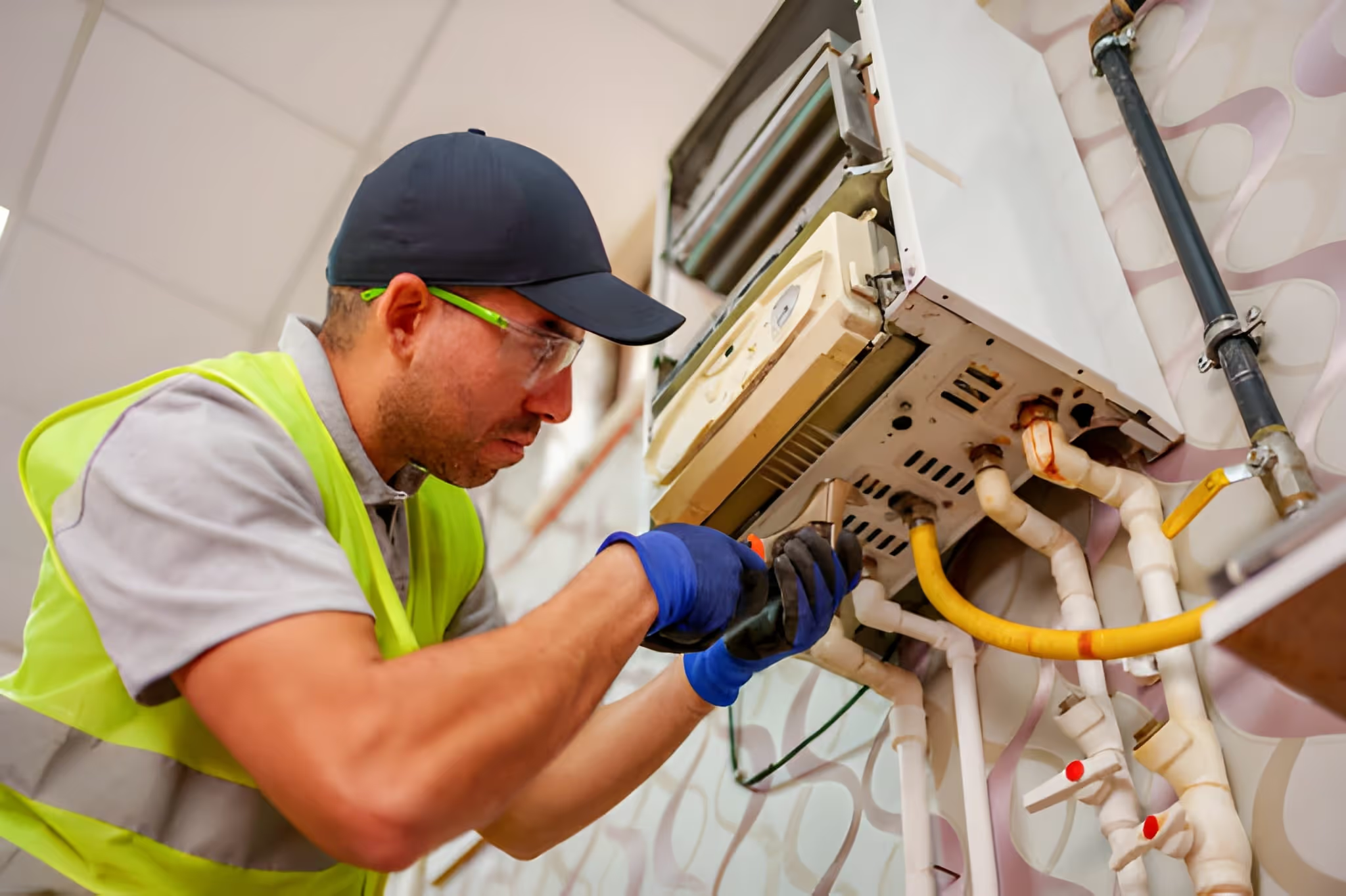Heating Maintenance in Roanoke, TX
Keeping your heating system running reliably through North Texas winters starts with preventative maintenance tailored to local conditions. In Roanoke, TX, where winters are generally mild but can include sudden cold snaps, a poorly maintained furnace or heat pump becomes obvious overnight — higher bills, uneven comfort, and the risk of breakdown when you need heat most. Professional heating maintenance programs and seasonal Tune-Ups reduce that risk, improve efficiency, and help preserve manufacturer warranties that many homeowners rely on.

Common heating issues in Roanoke homes
- Clogged or dirty filters restricting airflow and forcing the system to work harder.
- Ignition and pilot failures (gas furnaces) from dirty burners or faulty ignitors.
- Cracked or corroded heat exchangers that create safety risks and efficiency loss.
- Short cycling caused by thermostat problems, airflow restrictions, or improper sizing.
- Duct leaks and poor sealing leading to temperature imbalance through older DFW-area homes.
- Reduced heat pump performance in early winter or after prolonged off-seasons (refrigerant, reversing valve issues, defrost controls).
- Increased blower motor wear from accumulated dust, pet hair, and pollen common in the region.
Understanding these common problems helps you see why a structured Tune-Up each season matters for both comfort and safety.
What a seasonal heating Tune-Up includes
A professional heating maintenance visit is more than a quick filter change. Typical seasonal Tune-Ups for Roanoke homes include:
- Filter inspection/replacement: Ensures proper airflow and indoor air quality.
- Burner and ignition system cleaning/inspection: Improves reliable starts and combustion.
- Heat exchanger inspection: Visual and sensor checks for cracks or corrosion that could lead to carbon monoxide risk.
- Combustion analysis and CO testing: Verifies safe, efficient fuel burn and checks flue performance.
- Safety control checks: Tests limit switches, pressure switches, and emergency shutoffs.
- Blower motor, wheel, and belt inspection: Cleans and tightens components to restore airflow and reduce noise.
- Thermostat calibration and control checks: Confirms proper temperature readings and cycle times.
- Ductwork assessment: Identifies leaks, disconnected sections, or insulation shortfalls common in older DFW homes.
- Flue and vent inspection: Checks draft and seals to prevent backdrafting and improve venting safety.
- Heat pump-specific procedures: Inspect reversing valve, defrost controls, and outdoor unit condition; verify refrigerant charge if necessary.
- System performance report: Measured airflow, temperature split, and recommendations for repairs or upgrades.
Each item is performed with safety and efficiency in mind. Technicians document findings so you have the records needed for warranty and future service tracking.
Maintenance programs and warranty retention
Preventative maintenance programs are designed to make upkeep predictable and protect your investment. Common elements in heating maintenance agreements include:
- Scheduled annual or biannual Tune-Ups (furnaces typically once per year; heat pump systems often checked twice annually to cover heating and cooling seasons).
- Priority or preferred scheduling during high-demand periods.
- Service history records and stamped maintenance logs necessary for many manufacturer warranties.
- Discounts on diagnostic fees or parts for enrolled members.
- Seasonal reminders and filter-change alerts.
- Performance guarantees or satisfaction provisions outlined in the agreement.
Important: many manufacturers and labor-warranty programs require documented routine maintenance as a condition of warranty retention. Keeping written records of Tune-Ups and following the prescribed service schedule preserves warranty coverage and the extended labor protections that often accompany new equipment.
Scheduling and what to expect on service day
- Best timing: schedule heating maintenance in late September through October in Roanoke to ensure peak readiness before cold snaps. For heat pumps, consider an early fall check plus another in late winter if your system sees heavy use.
- Arrival and inspection: a thorough Tune-Up typically takes 60–90 minutes for a single system. The technician performs safety checks first, then diagnostic measurements, cleaning, and adjustments.
- Documentation: expect a checklist-style report detailing findings, measured values (temperatures, pressures, CO levels), and recommended repairs or parts.
- Follow-up: plans often include follow-up reminders and maintenance history logs that you should keep for warranty and resale purposes.
Scheduling flexibility and clear appointment windows are common features of formal maintenance plans to minimize disruption to your routine.
Energy-savings and satisfaction guarantees
Many maintenance agreements include performance assurances that protect homeowners in Roanoke concerned about operating costs. Typical guarantees may cover:
- A satisfaction guarantee ensuring the work performed meets the documented checklist and safety standards.
- An energy-savings guarantee that sets expectations for improved efficiency after Tune-Up work; if expected gains are not realized, some programs provide additional service or corrective work under the agreement terms.
Guarantee specifics vary by program and manufacturer warranty terms. Maintain records of service visits and any guarantee language to confirm coverage requirements.
Benefits of regular heating maintenance
- Improved efficiency and lower seasonal energy consumption.
- Extended equipment life and delayed need for premature replacement.
- Fewer emergency repairs during cold spells common to North Texas transitions.
- Safer operation through routine CO and combustion checks.
- Consistent, even comfort across rooms and fewer cold spots.
- Warranty protection through documented, professional maintenance.
Simple steps you can take between Tune-Ups
- Replace or check filters every 1–3 months depending on use and pets.
- Keep vents and returns clear of furniture and obstructions.
- Run a quick visual check of the outdoor unit in the fall for debris or nests.
- Test carbon monoxide detectors and change batteries annually.
- Keep a copy of all maintenance reports and receipts for warranty purposes.
Well-maintained heating equipment is quieter, more efficient, and more reliable during the unpredictable cold days Roanoke can experience. Regular, documented Tune-Ups tailored to local climate and common regional system models are the most effective way to protect comfort, safety, and your equipment investment.

Flexible Financing Options
Explore our range of flexible financing options designed to suit your needs and budget.













